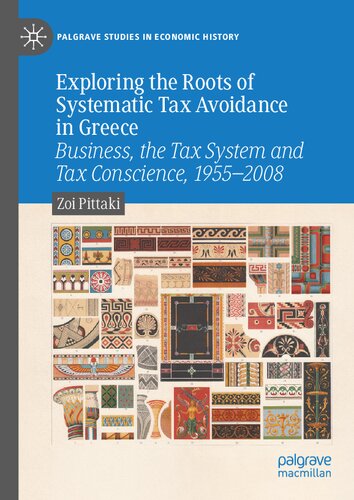

Most ebook files are in PDF format, so you can easily read them using various software such as Foxit Reader or directly on the Google Chrome browser.
Some ebook files are released by publishers in other formats such as .awz, .mobi, .epub, .fb2, etc. You may need to install specific software to read these formats on mobile/PC, such as Calibre.
Please read the tutorial at this link. https://ebooknice.com/page/post?id=faq
We offer FREE conversion to the popular formats you request; however, this may take some time. Therefore, right after payment, please email us, and we will try to provide the service as quickly as possible.
For some exceptional file formats or broken links (if any), please refrain from opening any disputes. Instead, email us first, and we will try to assist within a maximum of 6 hours.
EbookNice Team

Status:
Available0.0
0 reviewsThis book explores the interaction between business and the system of taxation in Greece, from the mid-1950s up to 2008, the year that marked the eve of the economic crisis the country faced in the aftermath of the international financial crisis of 2007. The evidence presented confirms William Baumol’s point about how taxation affects entrepreneurship. That is, it is shown that Baumol was right when indicating that problematic tax rules can lead to unproductive forms of entrepreneurship, such as tax evasion. However, the focus here is on aspects of the system of taxation that Baumol’s model, examining solely tax rates and levels of taxation, neglected. This book shows that, as far as Greek entrepreneurship is concerned, the adverse effects of the system of taxation came mostly from a series of issues that increased its perceived unfairness and illegitimacy. The way that the tax system functioned also increased uncertainty, which was anything but beneficial for investing in business.
This book contributes to the current debates about the Greek economy and the causes of the crisis affecting the country. In this respect, it also throws light on the big issue of tax evasion burdening the country’s fiscal system. However, the research also belongs to the wider literature examining entrepreneurship from a business history perspective, to that focusing on the relation between entrepreneurship and institutions, to the debates regarding the ways entrepreneurship is affected by the socio-political and economic environment but also to institutional analyses about taxation.